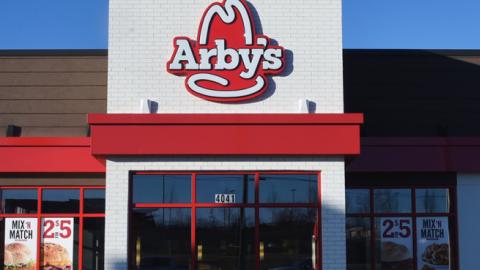Amidst all the frenzy for plant-based meat alternatives from companies like Impossible Foods and Beyond Meat comes this cheeky pushback from restaurant chain Arby’s: a carrot made from meat. Not too surprising from a company whose proud slogan is “We’ve got the meats.” Nonetheless, it shows how out of touch America’s third-largest sandwich chain really is with fast-changing consumer tastes.
The “marrot,” unveiled by Arby’s R&D labs in late June, has a 50-50 chance of being rolled out at the company’s more than 3,400 restaurants. But Arby’s has long used humor effectively and profitably to market to its loyal base of unapologetic meat-lovers. In this way, the marrot is in character: cheerfully politically incorrect, a MAGA hat of a menu item, a playful poke at vegans and environmentalists.
As a former packaged foods marketer, I certainly appreciate that this can create some 'buzz' around the Arby’s brand. But this move is yet another example of how the restaurant industry does not take seriously the overweight and obesity challenges faced by its customers.
I view the marrot as a campy symbol of resistance from the fast-food industry, a sector that has increasingly been under fire for making consumers unhealthy. A January 2019 Lancet Commission report specifically targeted the meat industry’s role in global warming and the entire food industry for contributing to the “syndemic” of obesity, undernutrition and climate change.
The restaurant industry has been notorious for continuing to sell highly caloric and over-portioned foods. Unlike the soft drink, confectionery and packaged foods industries, which have all made public commitments to trim calories in their products, we’ve seen few commitments from the restaurant and food service industries. That’s a serious health problem because these sectors are responsible for over 30 percent of the calories consumed in the U.S.
Indeed, children who eat at fast-food restaurants take in 126 more calories per day than those who eat at home, and adolescents take in 310 more calories. Childhood obesity remains stubborn, just under a troubling 20 percent.
Why is the fast-food industry balking? It may be because restaurant chains are grappling with other challenges to their profits, such as the $15 per hour minimum wage. Additionally, franchisees by necessity tend to be operators who don’t like to tinker with proven formulas for profit. They are more comfortable sticking to the maxim, “If it ain’t broke, don’t fix it.”
What’s more, many have long memories about past forays into healthier menus that flopped. (Anyone remember McDonald’s McLean Deluxe or Burger King’s Satisfries?) So innovation at these chains tends to be clever permutations of the same-old, same-old: fried chicken patties used as “bread” in KFC’s Double Down sandwich, French toast sticks, a bewildering array of sweetened iced coffee options … and in Arby’s case, endless variations of meat, even in carrot form.
This industry’s reluctance to change may also be because despite a general trend towards healthier eating, 39 percent of Americans care little about what they eat, according to the Natural Marketing Institute. Pandering to this group has made restaurant chains like Arby’s, Hardees and KFC enormously profitable; Arby’s annual sales are a meaty $3.9 billion.
But their core customers have the highest rates of obesity, and many come from lower-income households. Profiting off unhealthy consumers is shortsighted, and not just from a public health standpoint. The long view is that these diehard restaurant consumer segments are shrinking in number, down 9 percentage points since 2014.
Increasingly, consumers are committing to healthy eating or looking for restaurants that make healthier eating convenient and delicious. As more families include at least one health-conscious member, the chances of a “veto vote” against visiting a traditional fast food restaurant will increase. And while many restaurant owners have complained that they are losing money selling value meals, adding healthier options will lure in the healthier consumers who tend to be wealthier and willing to pay more.
Several fast-food restaurant executives told The New York Times that they are taking a “wait and see” approach to adding plant-based meat alternatives to their menus. That’s okay. But they shouldn’t wait too long as, according to Natural Marketing Institute, 41% of consumers already believe that plant-based protein is a more environmentally-friendly option than meat based protein. Even if they don’t embrace meatless burgers, they should acknowledge their big role in shaping public health for better or worse. They should also be doing more about it for their own financial good.
So here are some meaty takeaways for the restaurant industry to chew on:
* Broaden your menus. To pull in the growing number of consumers moving toward healthier foods and plant-based products, restaurants need to offer and promote both traditional and vegetable-based items. This is not a mandate to “Go Tofu”; rather, it is common sense advice to ensure that future generations of customers remain in the fold.
* Stop thinking either/or. While avoiding operational complexity is an important consideration, we are fully entrenched in a “one-size-does-not-fit-all” world. Consumer segments are highly fragmented, with each demanding different products and services from restaurants. By focusing only on patrons who don’t care about what they eat or how much, this sector risks serious long-term sales declines.
* Take a stand. Restaurateurs need to take a leadership stance and think seriously about making a real commitment to reduce portion sizes and eliminate excess calories. It’s in the public interest and their own as well, because Hudson Institute studies have demonstrated that sales growth is coming from lower-calorie and smaller-portioned items. If that’s still not enough, consider what happened to the soft drink industry, which has been vilified, taxed globally and forced to broaden its selection of beverages. Getting ahead of the regulatory freight train would be a smart move.
Obesity, under-nutrition, global warming and changing consumer tastes will undermine what fast-food restaurants have stood for over seven decades. Arby’s meat carrot is funny and attention-getting, but the restaurant industry’s resistance to change is nothing to laugh about.















